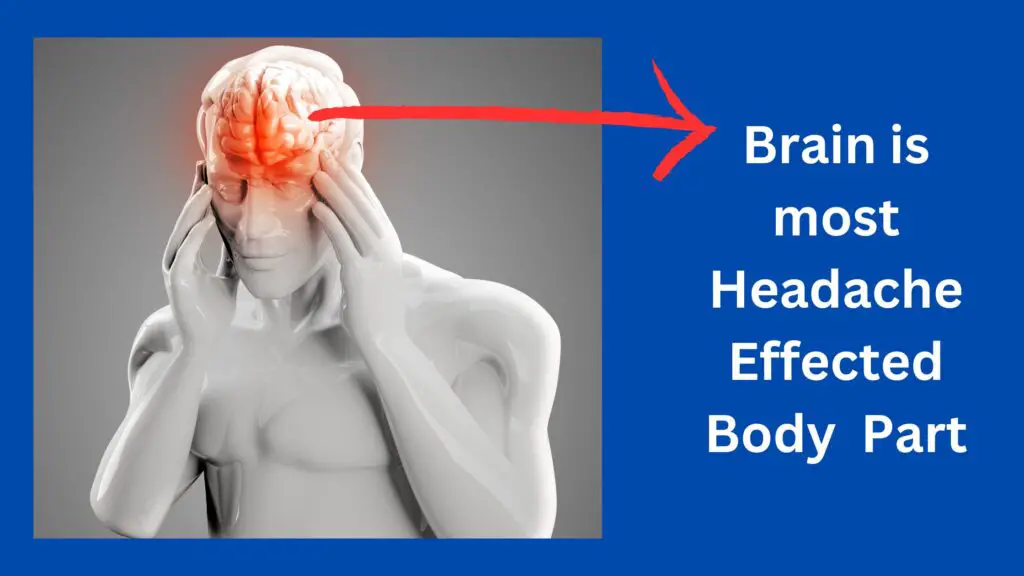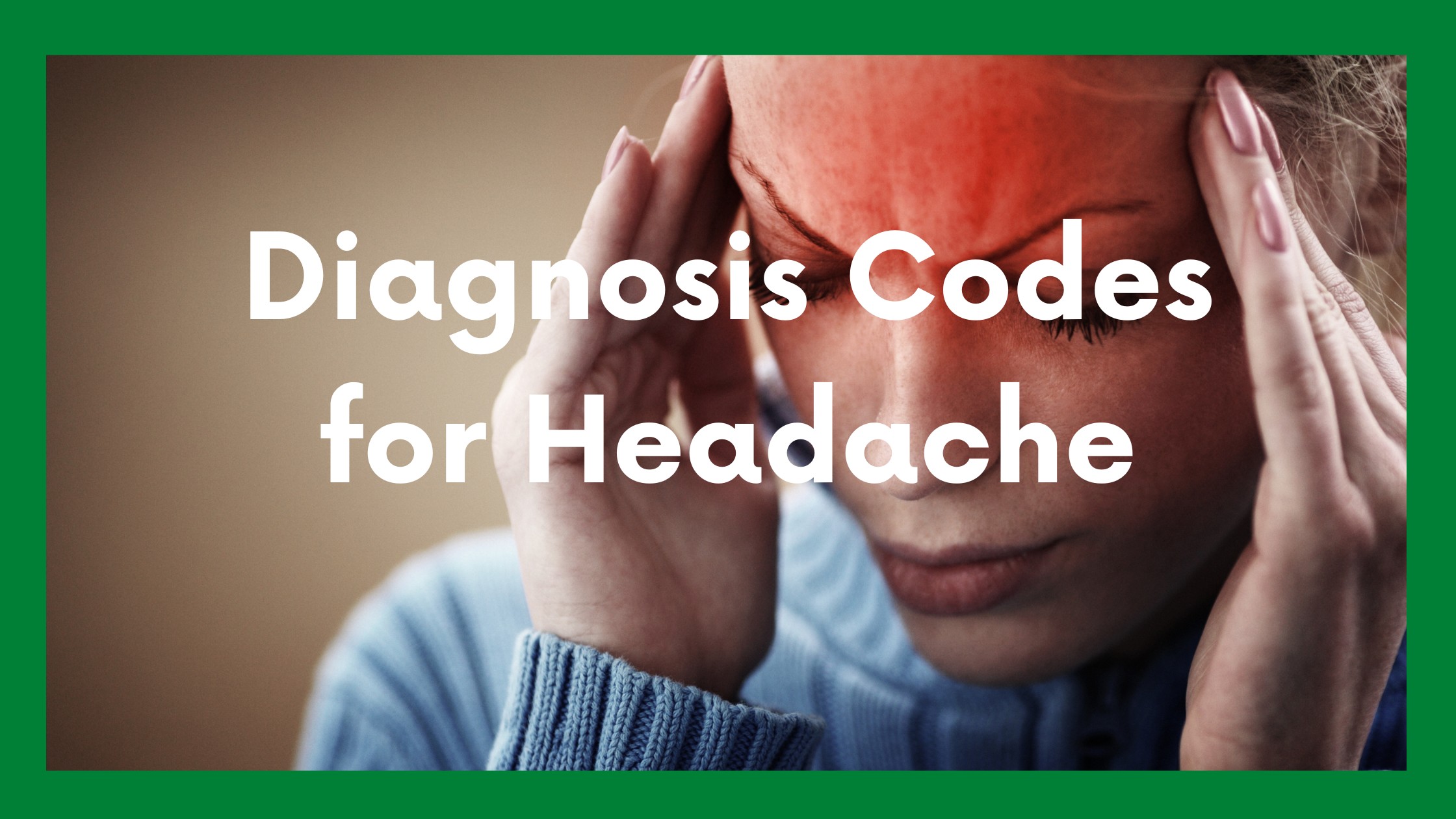Headache is a common neurological symptom that can range from a dull, throbbing ache to an excruciating, pounding sensation. ICD 10 code for headache is R51. ICD 10 codes for headache with different scenarios are also updated in below listed. Headaches are divided into two major types: primary and secondary headaches. Primary headaches are not caused by an underlying condition and include migraine, tension-type, and cluster headaches. Secondary headaches are caused by another health problem such as dehydration, tension or infection and usually resolve once the underlying disorder is treated. Common triggers for primary headaches include stress, lack of sleep, certain foods, intense physical activity, alcohol consumption, and certain medications. Treatment for primary headache is largely based on the type of headache, including lifestyle modifications, preventive medications, if appropriate, preventive medications to treat existing pain and neuromodulation techniques such as thermal biofeedback or transcranial magnetic stimulation.
Table of Contents
- ICD 10 code for Headache
- Causes of Headache
- Symptoms of Headache
- Effects of Headache on body
- How to Protect ourself from Headache
- FAQs:
- Conclusion:
- Related Articles:
ICD 10 code for Headache
| Description | ICD Codes |
| Fever of other and unknown origin | R50 |
| Drug induced fever | R50.2 |
| Other specified fever | R50.8 |
| Fever presenting with conditions classified elsewhere | R50.81 |
| Postprocedural fever | R50.82 |
| Postvaccination fever | R50.83 |
| Febrile nonhemolytic transfusion reaction | R50.84 |
| Fever, unspecified | R50.9 |
| Headache | R51 |
| Headache with orthostatic component, not elsewhere classified | R51.0 |
| Headache, unspecified | R51.9 |
| Pain, unspecified | R52 |
| Malaise and fatigue | R53 |
| Neoplastic (malignant) related fatigue | R53.0 |
| Weakness | R53.1 |
| Functional quadriplegia | R53.2 |
| Other malaise and fatigue | R53.8 |
| Other malais | R53.81 |
| Chronic fatigue, unspecified | R53.82 |
| Other fatigue | R53.83 |
| Age-related physical debility | R54 |
Causes of Headache
Headache is a type of pain which can be due to many possible reasons, it also depends on our daily lifestyle to a great extent, stress and work pressure is one of the major reasons. Some of the main causes of headache are as follows-

◆ Common causes include stress and muscle strain, adverse reactions to food or drugs (side effect), etc.
◆Also may include hormone changes, stress and illness, or excessive physical exertion during the menstrual cycle.
◆ In addition, more serious medical conditions such as aneurysms, tumors, and strokes can also cause headaches.
Understanding the source of a headache may be the key to seeking an accurate diagnosis and treatment options, and potentially avoiding a recurrence in the future.
Symptoms of Headache
Headache is a common condition that can be recognized by a variety of symptoms, its symptoms also emerge immediately. Its symptoms are as follows-
◆ Common symptoms of a headache include a dull to severe pain located anywhere in the top of the neck.
◆ Throbbing sensations include pressure or tightness in the head, and sensitivity to light, sound or smell.
◆ Depending on the type of headache experienced, sufferers may experience additional symptoms such as nausea, vomiting, fever and vision changes.
◆ Can last from an hour to several days.
Effects of Headache on body
Headaches can have a variety of negative effects on the body, ranging from mild to severe. Headaches may cause a sharp throbbing or dull ache and may be localized or may be accompanied by other symptoms such as nausea, vomiting, fatigue, difficulty concentrating, and depression. Chronic headaches can interfere with everyday life such as affecting school and work performance. Additionally, headaches can put additional stress on various parts of the body to cope with the increased stress a person is under due to the headache. Muscle tension in the neck and shoulders caused by headaches can reduce a person’s range of motion and cause further discomfort. In addition, it can increase the risk of insomnia, which further reduces a person’s energy levels, making it difficult for them to perform daily tasks effectively.
How to Protect ourself from Headache
Headache is not a serious condition but it is necessary to diagnose it on time. To protect yourself from headaches, the most important step is to practice regular preventive care. This includes reducing stress and improving sleep habits, as well as engaging in regular physical activity, eating a balanced diet and avoiding stimulants such as alcohol or caffeine that can sometimes trigger headaches. Apart from this, following a good and systematic lifestyle can be beneficial for you. Making sure to stay hydrated with plenty of water and avoiding environmental triggers such as smoke or strong odors should also be part of regular care.
Treatment may include certain medications to control pain or relief of other associated symptoms, certain lifestyle modifications such as reducing stress or drinking less caffeine, or stress-reduction techniques such as meditation and relaxation.
FAQs:
Ans. Although headache can be divided into many parts but following are some of its common types-
1- Migraine headache
2- Tension headache
3- Hypnic headache
4- Cluster headache
Ans. No clear cause of migraine has been found yet, below are some reasons which can be responsible for migraine-
◆Abnormal brain activity
◆Temporarily affecting nerve signals.
◆Chemicals and blood vessels in the brain.
Ans. ◆ Illness and infection.
◆Colds, Flu and Ears Common diseases like sinus infection
◆Head injury.
◆ heredity predisposition
Conclusion:
Through today’s post, we have come to know what is headache, what can be the causes of headache and what are its initial symptoms. Apart from this, we have come to know what are the risks of headache and how we can reduce its risk by taking some precautions. In short, headache occurs due to our daily routine which includes stress, work pressure, family problems etc. To avoid this, we have to give up daily physical exercise, balanced diet, intake of intoxicants like alcohol, air, caffeine and should include balanced food in the diet.
Image source- Google

